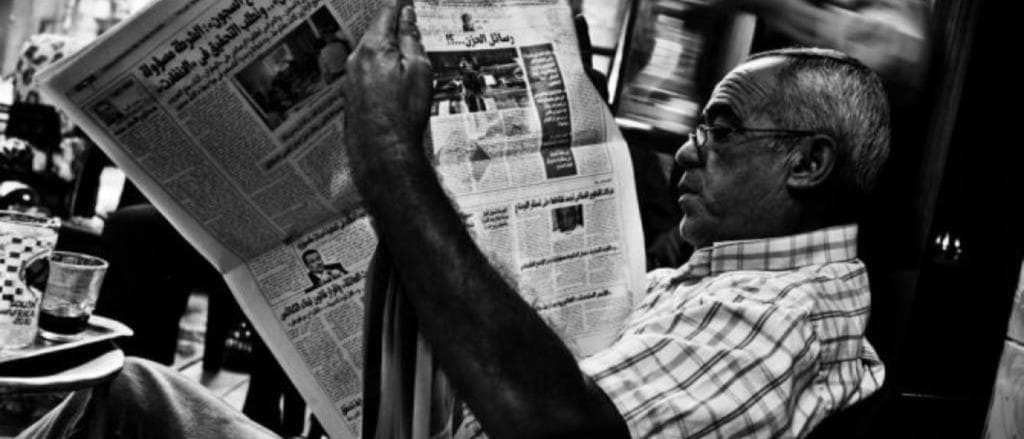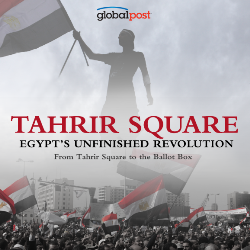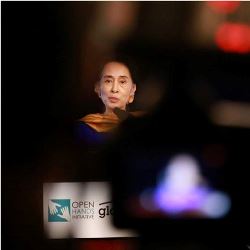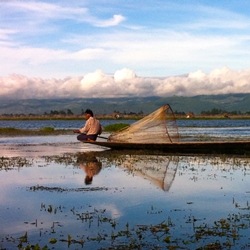
A free press and democratic values go hand in hand. We aim to encourage freedom of expression and to support democracies in transition by providing a platform on which to build a stronger, more independent press. Our programs not only help develop critical skills for aspiring reporters and foreign correspondents, but also offers a unique opportunity for young journalists to develop cross-border networks and professional ties that can last for decades.
Our media training programs provide a innovative opportunity for young writers, photographers, videographers, and reporters to explore different points of view and collaborate on field-reporting projects. Moreover, they provide real-life experiences for fellows to report on important current events, while honing their skills in investigative journalism and storytelling. In partnership with leading news agencies and seasoned international journalists, the Open Hands Initiative has trained dozens of young media professionals from the United States, Egypt, and Myanmar (Burma), and has helped share their stories with millions of readers, viewers, and listeners across the globe.

Our 12 day program, which consisted of three days of seminars and five days of field reporting, brought together 17 exceptional young journalists (8 American and 9 Egyptians) to tell the story of Egypt's 'unfinished revolution,' born of the Arab Spring. Together with veteran journalists Charles M. Sennot and Jon Jensen of the GlobalPost and award winning photojournalist, Gary Knight, our young journalists produced a 25-part "Tahrir Square Special Report", featured on the GlobalPost website, to enlighten audiences on the historic events unfolding in Cairo at the time. These stories capture five “beats” critical to understanding and telling the story of the Egyptian Revolution: Arts & Culture, Economy & Tourism, Human Rights & Justice, Politics & Governance, and Religion & Minorities.
Four months later, we hosted a public forum, “Egypt: From Tahrir Square to Today” at Harvard University to follow up on events happening in Egypt since our time there. The forum was moderated by OHI Board member, Tina Brown, Editor-in-Chief, The Daily Beast & Newsweek, and featured Mona Eltahawy, Columnist at Toronto Star, and The Jerusalem Report & Politiken; Tarek Masoud, Assistant Professor of Public Policy, HKS; and Charles Sennott, Vice President, Executive Editor & Co-founder, GlobalPost.
Egypt is a country rich in history and in culture. For centuries, it has played a key role in influencing and maintaining peace and stability within the region. Since the Arab Spring of 2011, with Egypt at its epicenter, this role is plays has grown in importance.
By strengthening relations between the United States and Egypt, we hope to provide an anchor into the Arab and Muslim world for more Americans to understand the depth of complexity and commonality we share with Egypt, the region, and vice versa. While current political rhetoric continues to pit the two countries and cultures against each other, strengthening people-to-people relations will serve to deconstruct these limited narratives and open pathways for greater tolerance, mutual respect, and cooperation.

Our three-week program brought together 20 exceptional young journalists (9 Americans and 11 Burmese) to spotlight Myanmar's transformation under a reform-minded government. Fellows participated in educational seminars, field training, and production workshops that emphasized a hands-on approach to photography, videography, and radio broadcasting. In addition, they participated in a number of cultural immersion activities to gain a solid understanding of the country's history, culture, and current affairs.
The fellows were divided into five teams of four, each accompanied by a program leader. One group traveled down the Burma Road from the Chinese border, where the fellows examined the influence and impact of Burma's northern neighbor. The second group followed the string of former capitals --Bagan and Mandalay-- before arriving in the current government seat of Naypyidaw to capture the country's changing political landscape. A third visited Inle Lake, where they reported on the crossroads of tourism and development, and the impact these activities are having on the environment of a sensitive ecosystem. The fourth team traveled to the Irrawady Delta, where they measured the progress to restore the area after Cyclone Nargis hit in 2008. And the fifth team looked a labor rights and the economy in Yangon. Together with the GroundTruth Project, our fellows produced "A Burmese Journey Special Report", featured on the GlobalPost website. The report has been translated to Burmese and has appeared on the Radio Free Asia and in the Voice Weekly, Myanmar Times, among others.Special guests included Nobel Peace Laureate and Member of Parliament Daw Aung San Suu Kyi.
After decades of isolation, Myanmar's government has introduced significant political and economic reform, allowing for the United States and others to reengage with the country. With the lifting of international sanctions and the country's return to a formal political process, a more prosperous and democratic Myanmar is on the horizon. This opening and socio-political and economic transformation provide a critical opportunity to rebuild relations between the two countries.

We actively seek partners - individuals and organizations - from around the world in order to advance our common goals. Feel free to contact us by mail, phone or email to find out more about getting involved. Please note that we do not accept unsolicited funding requests or grant proposals.
1350 Ave. of the Americas
New York, NY 10019
+1-917-544-7260
info (at) openhandsinitiative (dot) org